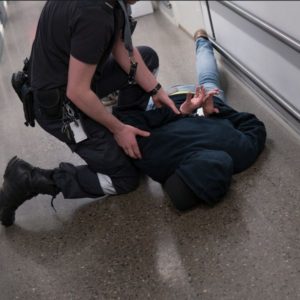 Even if you have never been through an encounter with the police, you have probably heard of your “Miranda rights.” Every police drama and law enforcement reality show portrays a police officer reading someone their Miranda rights. Unfortunately, those shows don’t usually do a very good job of explaining what you need to know about your Miranda rights (also known as Miranda warnings). Because it is crucial for everyone to understand their rights, here’s what you need to know about these rights.
Even if you have never been through an encounter with the police, you have probably heard of your “Miranda rights.” Every police drama and law enforcement reality show portrays a police officer reading someone their Miranda rights. Unfortunately, those shows don’t usually do a very good job of explaining what you need to know about your Miranda rights (also known as Miranda warnings). Because it is crucial for everyone to understand their rights, here’s what you need to know about these rights.
What Are Miranda Rights?
What we now refer to as our “Miranda rights” stem from the Supreme Court case – Miranda vs. Arizona, 384 US 436, 1966 – that ultimately resulted in a requirement that law enforcement officers advise suspects/arrestees of certain constitutional rights. Specifically, the Supreme Court included a statement intended to illustrate what a police officer must (at a minimum) tell a suspect before questioning him/her, including:
- You have the right to remain silent.
- Anything you say can and will be used against you in a court of law.
- You have the right to an attorney.
- If you cannot afford an attorney, one will be appointed for you.
When Must Miranda Rights Be Given and When Are They Not Required?
Contrary to what many people believe, a police officer is not always required to advise someone of their Miranda rights. In fact, a law enforcement officer is only required to read you your Miranda warnings if you are considered to be in custody and the officer wishes to interrogate you. By way of illustration, if the police knock on your door and want to ask you questions, they do not have to read you your Miranda rights because you are not in custody.

Conversely, even if you are under arrest in the backseat of a police car, it is not necessary for a police officer to read you your rights if they do not intend to ask you any questions during the ride to the station. In short, Miranda rights are only required when a police officer plans a custodial interrogation.
Routine questions, even when asked by a law enforcement officer, do not require a Miranda warning. For instance, when you are booked into jail, and an officer asks you for identifying information, a Miranda warning is not necessary because it is not an interrogation.
Finally, there is an emergency exception to the Miranda requirement. When a police officer has an objectively reasonable need to protect the police or the public from immediate danger, the requirement that a Miranda warning be given prior to custodial interrogation may be waived. The public safety exception only allows for limited questioning by an officer that is necessary “to secure their own safety or the safety of the public.”
What Happens If the Police Do Not Read You Your Rights?
Failing to advise a suspect of his/her rights does not result in the case being dismissed. However, if you were in custody, and the police questioned you but failed to first read you your Miranda rights, the remedy may be to exclude your answers from being admitted at trial.
Contact a Chicago Criminal Defense Attorney Today
If you believe your rights were violated because the police failed to read you your Miranda rights during an interrogation or arrest, contact an experienced Chicago criminal defense attorney at Sexner and Associates, LLC today by calling 800-996-4824or by filling out our online contact form.
This blog is available for informational purposes only and is not considered legal advice on any subject matter. The blog should not be used as a substitute for legal advice from a licensed professional attorney, and readers are urged to consult their own legal counsel on specific legal questions.

